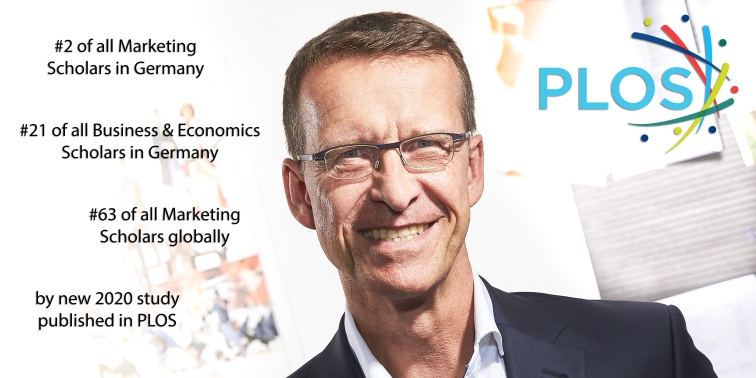Stanford study recognizes Prof. Hennig-Thurau as leading marketing and business scholar

In a new study conducted by Stanford University scholars and published by prestigious PLOS Biology journal in October 2020, Prof. Thorsten Hennig-Thurau from the Marketing Center Münster is listed as one of the world's leading scholars in the field of marketing and business/economics. In the ranking, which includes the Top 2% global scientists across a wide range of academic disciplines, Hennig-Thurau is ranked 2nd among all marketing scholars in Germany and 63rd among all marketing scientists globally. Of all business and economics scholars in Germany, the Professor of Marketing and Media takes rank 21.
To evaluate scholars academic performance, the authors used a total of six citation-related criteria which they compiled into a single measure, the “composite citation index”. This index also accounts for self-citation biases, as the researchers found some scholars' citations being predominantly determined by citations in their own works. Overall, the authors' ranking includes a total of 159,684 leading scientists from the natural sciences and medicine as well as social sciences such as psychology, education, and economics. All ratings reflect the scholars’ career-long citation impact; only citations in refereed journals are considered.
Prof. Hennig-Thurau, whose research deals with customer orientation, digitalization, and the media/entertainment industries, is one out of 128 scholars from Münster University who are included in the ranking. As the highest ranked social sciences scholar of the WWU, he is ranked 27th of all WWU professors. Thorsten Hennig-Thurau is Professor at the Marketing Center Münster and serves as Academic Director of WWU’s MBA in Marketing progam. With Mark Houston, he has recently authored the book “Entertainment Science” whose content has been downloaded almost 2 million times.
Source: Ioannidis JPA, Boyack KW, Baas J (2020): Updated science-wide author databases of standardized citation indicators. PLoS Biol 18(10): e3000918.
The article and the data can be accessed here.

